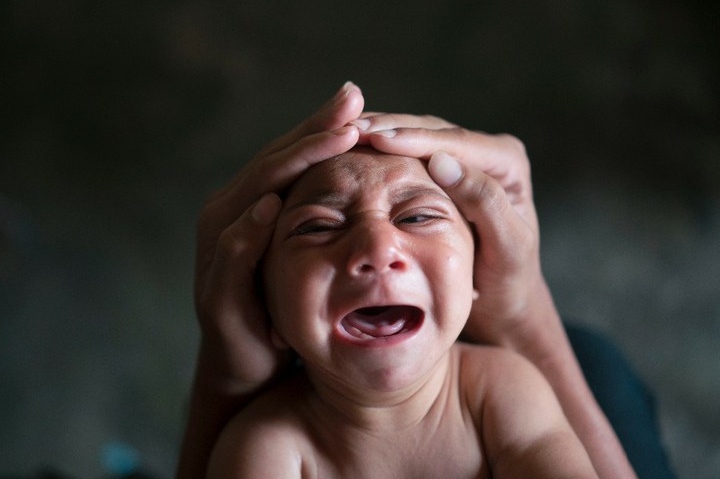Where should the Zika virus be tested in Vietnam?
Information Australian tourists have the following symptoms of Zika virus infection returning from Vietnam, many people worry. Suspected people can check early to avoid spreading.
Talking to Zing.vn, Dr. Tran Dac Phu, Director of Preventive Medicine Department, Ministry of Health said that people suspected of being infected with Zika virus can go to any medical facility for examination. In particular, patients who have symptoms of dengue but have a negative test result need to think about infection with Zika virus.
Accordingly, these subjects will be sampled to send to the Pasteur Institute for disease testing.
Currently, the Ministry of Health has appointed 2 Zika virus diagnostic laboratories of the National Institute of Hygiene and Epidemiology and the Pasteur Institute in Ho Chi Minh City. Ho Chi Minh . In the near future, the Ministry of Health will put into operation two Zika virus diagnostic laboratories of the Central Tropical Diseases Hospital and Ho Chi Minh City Hospital for Tropical Diseases.
Prof. Dr. Dang Duc Anh, Director of the National Institute of Hygiene and Epidemiology also affirmed that Vietnam currently has the capacity to diagnose Zika virus so people should not be too afraid. For proper diagnosis, there are two methods: serological diagnosis and molecular diagnosis . In particular, serological diagnosis will likely lead to errors, so we need to look at molecular diagnosis.
 Zika virus can cause fetal brain atrophy, making the baby born with a brain smaller than normal.(Photo: BBC)
Zika virus can cause fetal brain atrophy, making the baby born with a brain smaller than normal.(Photo: BBC)
People should not be too worried
Dr. Tran Dac Phu added that symptoms of Zika virus are not specific, up to 80% have no clinical manifestations.
Patients have very similar manifestations as other diseases such as dengue fever, muscle pain, fatigue . so it is difficult to detect the disease. Especially symptoms are usually mild and self-relieved. Therefore, pregnant women may not know if they are infected with Zika virus.
According to Phu, as of March 18, 2016, Vietnam has not recorded any cases of Zika virus infection. Earlier, the Institute of Hygiene and Epidemiology, Pasteur Institute conducted about 200 samples of specimens to test in many key provinces and cities to conduct tests. The results show that all cases are negative.
Since there is not enough information from the Australian case during the stay in Vietnam and it is not possible to eliminate the possibility of Zika virus infection due to transit in other countries before and after leaving Vietnam, the Ministry of Health It is not possible to confirm the circulation of Zika virus in Vietnam.
This morning (April 24), Phu was present in Binh Thuan to direct close prevention of the epidemic. At the same time, he directed the Ho Chi Minh City Pasteur Institute, Pasteur Nha Trang to support the localities where the Australians used to go; enhance sampling of suspected cases for testing; availability of medicines, supplies and bio-products to ensure the monitoring and processing when detecting Zika outbreak.
Zika virus was first discovered from Rhesus monkey in 1947 in Uganda and in 1948 discovered on Aedes mosquito. Mosquitoes that transmit diseases of the Aedes group are mosquitoes that transmit dengue dengue . Incubation period 3-12 days. Patients with fever, skin rash, conjunctivitis, arthralgia, myalgia, fatigue and headache.Zika virus does not directly cause death and does not have a clear test, but there is a great correlation for the two diseases that are: small brain syndrome and neuropathy . There is currently no vaccine for Zika virus and no specific drug for treatment. Vietnam has not experienced this treatment yet.
WHO said that so far, 59 countries and territories have recorded the circulation of Zika virus. In Southeast Asia such as Thailand, Philippines, Indonesia, Malaysia, Laos . also recorded cases of foreigners infected with Zika virus after returning from these countries, but WHO does not have limited recommendations. travel to countries with epidemics.
- Process of Zika virus testing in Vietnam
- Vietnam discovered the first 2 cases of Zika virus
- America tried to successfully vaccinate against Zika virus in animals
- Zika virus spreads to 3 neighboring countries of Vietnam
- Korean girl infected with Zika virus after returning from Vietnam
- The fourth Zika patient in Vietnam is a German
- What do people know about Zika?
- Young men in Phu Yen are infected with Zika virus
- Zika virus in Brazil is similar to Zika virus in Asia
- Medicine stands before a great opportunity to control zika
- WHO: The latest research on Zika virus is very worrying
- Common questions when Zika virus spread in Saigon
 Green tea cleans teeth better than mouthwash?
Green tea cleans teeth better than mouthwash? Death kiss: This is why you should not let anyone kiss your baby's lips
Death kiss: This is why you should not let anyone kiss your baby's lips What is salmonellosis?
What is salmonellosis? Caution should be exercised when using aloe vera through eating and drinking
Caution should be exercised when using aloe vera through eating and drinking